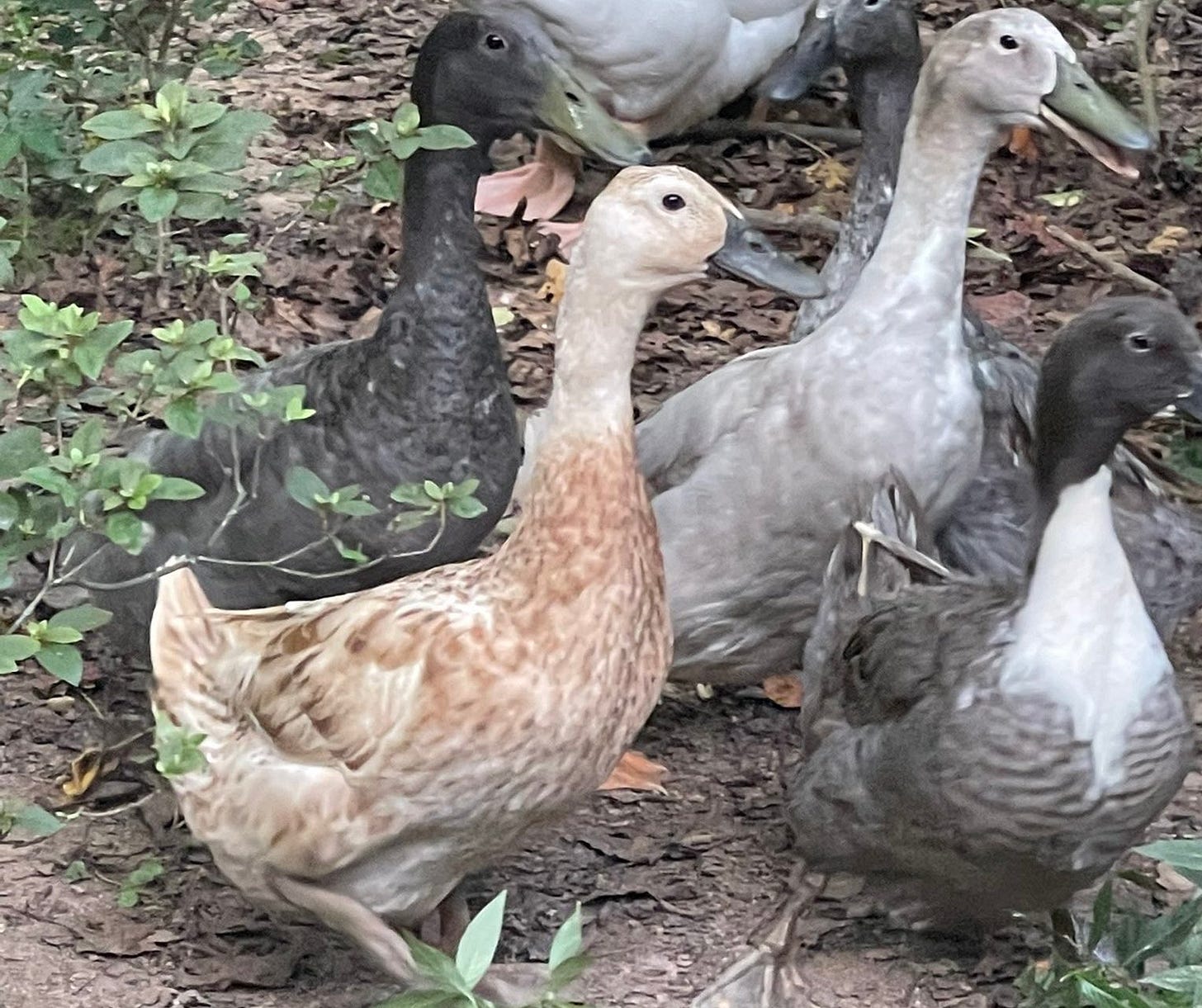Merging Two Flocks
We took in some adult ducks! Bringing together two sets of adult birds always invites drama, but fortunately, that was all it led to in here.
Several days ago, through the internet, we were introduced to a chef who had purchased a small flock of ducks for their eggs, which are often hard to find but prized for their culinary value — something that drew us to them as well. However, this neighbor’s dog kept breaking into his yard to attack them, so he wanted to rehome them, which is where we stepped in. We already had an existing small, mixed flock of ducks and geese, with the ultimate goal being the combination of the two into one, unified flock.
Adding new members to a flock is far easier when they grow up with it, even if they are not the biological offspring of its existing members. Adult birds generally view babies as less threatening, and the babies, in turn, seek out adult birds who can keep them safe and warm. However, when two sets of adult birds are combined together, things get more complicated, as territorialness and social orders collide.
The good news is things are going about as well as they could. The geese, both of whom are female, and the drakes from the new flock engaged in a bit of a power struggle, but it is one being fought through honks and feather displays rather than overt violence. Thankfully, that means the two flocks are not going to go to war, they simply need to fully figure out the new social dynamics. Male birds tend to be the most dominant in bird flocks, but the geese are so much larger. It is tough to say how the social dynamics of the flock will all shake out, but the drakes seem to have the upper hand.
This addition will put us in a position of a significant surplus of eggs. Given we have drakes in our flock again for the first time in over a year, the eggs will be fertilized too. Selling them is a lot of work for little payoff at this scale, though many upstart homesteaders are more willing to pay much more than food egg prices for hatching eggs or ducklings.
The genetics of our flock is now quite the hodgepodge of breeds, with these new ducks themselves a mix of prolific egg-laying breeds. “Purebred” is an overrated concept. What matters is if they are happy, healthy ducks capable of consistently laying a lot of good eggs. However, unfortunately, that is not always what drives consumer choice when seeking birds or hatching eggs.
Nonetheless, the ducks themselves are fairly low maintenance and capable of foraging for much of their food themselves during the warmer months, given they are given to a significant amount of space outdoors. The extra food, even at its peak in the winter, is fairly little on a per duck basis. Ultimately, given we already had to dedicate the time and resources to care for a small flock, caring for a slightly smaller one is not a significant additional burden.
When the new ducks first arrived on our little farm, they escaped and ran into the blackberry bramble, which proved an exhausting problem to solve. Athena, our corgi with her strong herding instincts, did not yet recognize them as our birds and seemed eager to chase them away rather than help gather them up. We wound up scratched up considerably by the thorns in the brambles before finally corralling them into the fenced-in part of the farm. Still worth it.

Over time, the old and the new have grouped up together, happily spending more time in each other’s presence, even if there is still some occasional ruffling of feathers. Notably, one of the ducks we had before, Brienne, who was always clingy with the geese continues to prefer spending time with them than members of her own species — which is fine. The geese and ducks are rarely far apart anyway, and the protection the much scarier (even to us!) geese provide against predators is precisely what attracted us to add them to the flock originally last year.
Our intention from the beginning, however, with starting this farming project was to make raising ducks for eggs the mainstay of our animal-raising efforts, and this addition represents a significant step forward in our journey there. Though the new and the old are still not yet perfectly integrated and may never be, they grow increasingly happy to be in each other’s presence, and everything has gone even better than expected.


